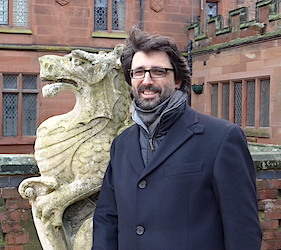

Roman Frigg: Three-Part Crash Course on the Science of Climate Change
14 September 2014 - 17 September 2014
ABSTRACT
This three-part lecture series focuses on the natural science aspects of climate change, as well as the methodological and philosophical questions that arise in connection with them. Everybody wishing to understand the basic physics behind climate change and the use of climate models is welcome to attend; no prior knowledge is presupposed. The first lecture explains the earth’s energy balance and introduces basic concepts such as the greenhouse effect, radiative forcing, time lags, feedback loops, climate sensitivity and climate variability. The second lecture introduces climate models, ensemble methods, and discusses what kinds of uncertainties attach to them. The third lecture discusses recent projects aiming to deliver high-resolution climate forecasts out to the end of the century and raises questions about the limits of predictability.
SPEAKER PROFILE

Roman Frigg is Professor of Philosophy in the Department of Philosophy, Logic and Scientific Method, Director of the Centre for Philosophy of Natural and Social Science (CPNSS), and Co-Director of the Centre for the Analysis of Time Series (CATS) at the London School of Economics and Political Science. He is a permanent visiting professor in the Munich Centre for Mathematical Philosophy of the Ludwig-Maximilians-University Munich. He held visiting appointments in the Rotman Institute of Philosophy of the University of Western Ontario, the Descartes Centre for the History and Philosophy of the Sciences and the Humanities of the University of Utrecht, the Sydney Centre for the Foundations of Science of the University of Sydney, and the Department of Logic, History and Philosophy of Science of the University of Barcelona. He is associate editor of the British Journal for the Philosophy of Science, member of the steering committee of the European Philosophy of Science Association, and serves on a number of editorial and advisory boards.
He holds a PhD in Philosophy from the University of London and masters degrees both in theoretical physics and philosophy from the University of Basel, Switzerland. His research interests lie in general philosophy of science and philosophy of physics, and he has published papers on climate change, quantum mechanics, statistical mechanics, randomness, chaos, complexity, probability, scientific realism, computer simulations, modelling, scientific representation, reductionism, confirmation, and the relation between art and science. His current work focuses on predictability and climate change, the foundation of statistical mechanics, and the nature of scientific models and theories.
Read more about Roman Frigg.
